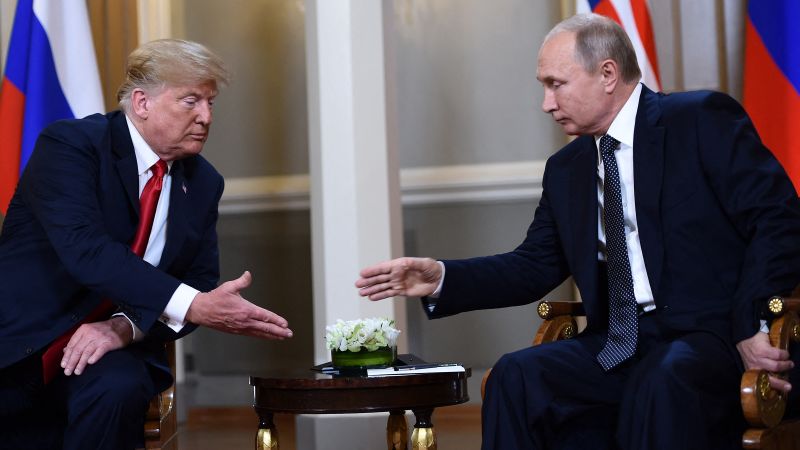In the lead-up to a crucial summit between President Donald Trump and Russian President Vladimir Putin, experts have pointed out a notable shift in Trump’s approach toward the Russian leader. Historically lauded for their personal rapport, Trump has appeared increasingly frustrated and curious about the changes within Putin’s stance regarding the ongoing conflict with Ukraine as the two leaders prepared for their first face-to-face meeting in six years at a location in Alaska. There was an increased urgency to understand what had changed in Putin’s strategy, with Trump reportedly asking aides what to expect going into the summit.
Concerns surrounding Putin’s intransigence regarding the invasion of Ukraine grew palpable as American and European officials expressed fear that the Kremlin was manipulating the situation. Trump sought to mediate a peace deal in Ukraine even before his presidency began. However, as Putin continued to reject calls for ceasefires amid escalating attacks on Ukrainian territory, the optimism surrounding upcoming negotiations started to wane. Although there were whispers suggesting a change in Putin’s immediate goals, American intelligence perspectives remained skeptical, positing that he may use any pause in conflict to regroup and further pursue territorial ambitions.
Despite some indications that Putin’s short-term objectives might have shifted recently, there remained a consensus that his overarching territorial ambitions had not. According to reports from U.S. intelligence, collective analyses indicated that Putin likely saw himself as in a favorable position, resulting in a lack of urgency to compromise. The sentiment was echoed by comments from European officials who emphasized the danger of conceding to Russian demands, viewing any potential agreement as tantamount to capitulation under aggressive negotiation tactics.
As Trump continued this line of inquiry and assessed the future trajectory of U.S.-Russia relations, the rhetoric surrounding the summit became increasingly pointed. He warned that Russia would face severe consequences should it prove inflexible on ceasing hostilities in Ukraine. Although specifics about the repercussions remained vague, past statements hinted at intensifying economic sanctions against Moscow should it not take meaningful steps towards establishing peace.
In parallel with these considerations, U.S. intelligence operations faced significant challenges in accurately gauging Putin’s intentions, with many officials repeatedly noting the difficulty of penetrating Kremlin operations effectively. Putin’s propensity for secrecy, informed by his past as a KGB officer, compounded the challenge for intelligence agencies aiming to keep tabs on his decision-making processes.
Meanwhile, as the summit neared, Trump showcased a combination of confidence and naivete, suggesting that he could quickly discern Putin’s seriousness regarding negotiations. The President claimed he would be able to assess the atmosphere of their initial interaction in the first few moments. While he reminisced about their well-established relationship from his earlier term, there appeared to be a subtle evolution in Trump’s perception of Putin. Reports indicated that Trump’s past comfort with Putin had become strained, leading to moments of frustration wherein he openly expressed annoyance at the Russian leader’s aggressions during private discussions with aides.
As geopolitical tensions climactic unfolded, the dialogue surrounding the meeting took on a dual character of intrigue and skepticism. Voices from European leadership expressed concern that Trump’s impending negotiations could potentially reward Putin and undermine Ukrainian sovereignty. Ukrainian President Volodymyr Zelensky raised alarms regarding Putin’s manipulative potential, predicting that the Russian president would attempt to portray the summit as an unmitigated victory while continuing his aggressive posture towards Ukraine.
Furthermore, continuing to navigate the psychological shifts within Putin’s administration became essential. Analysts highlighted the notion that prolonged isolation during the pandemic may have intensified geopolitical paranoia and irrational calculations within the Kremlin. With years of isolation shaping his perspective, Putin’s broader motivations transcended transactional negotiations—moving instead toward an ideological stance with imperial goals.
As Trump prepared for the summit, consideration of these factors became essential, highlighting the intricate interplay between individual leadership dynamics, geopolitical calculus, and historical context in one of the most pressing international conflicts of the modern era. The outcome of this summit could bear significant implications not only for the U.S. and Russia but also for global stability in the face of escalating tensions.











